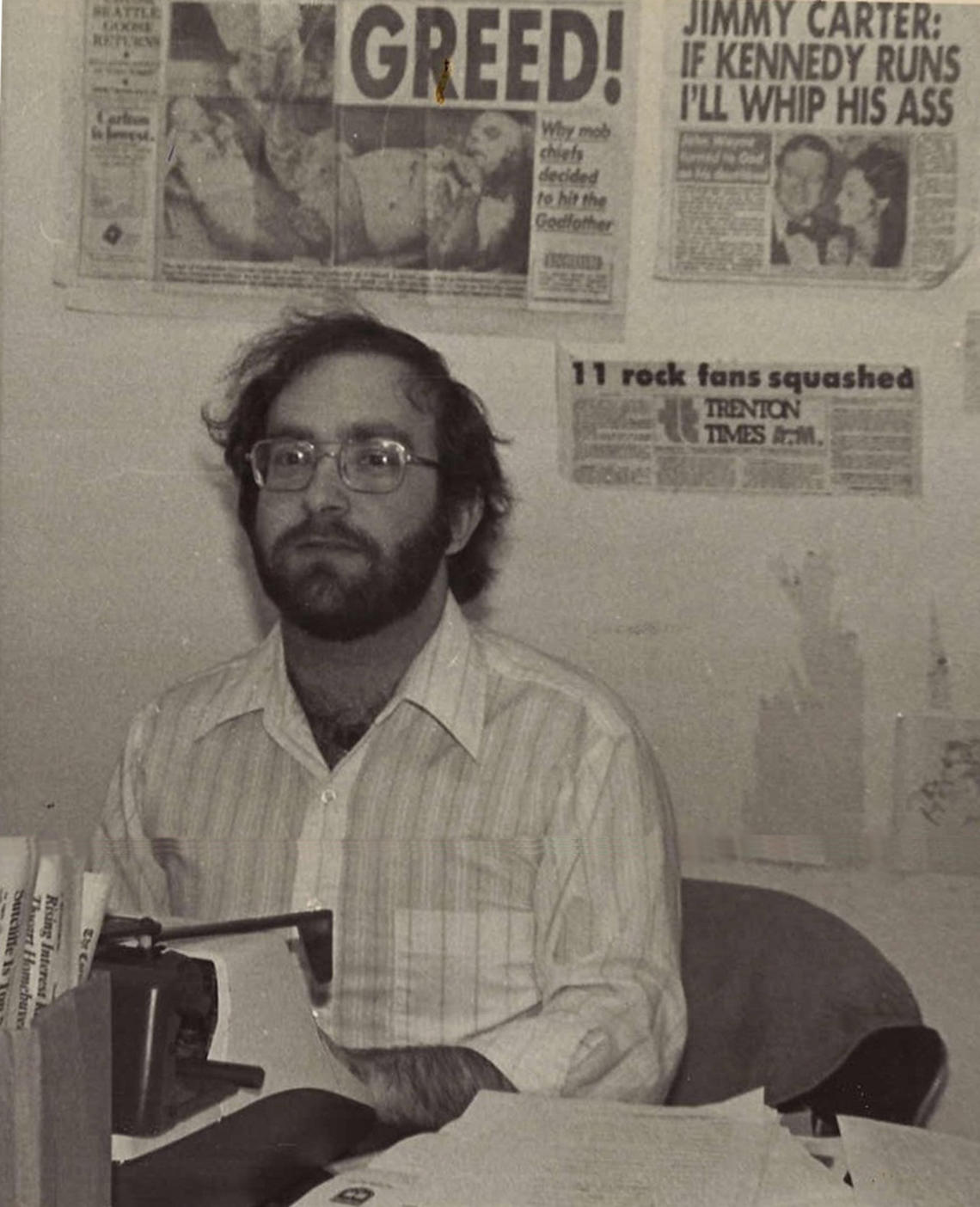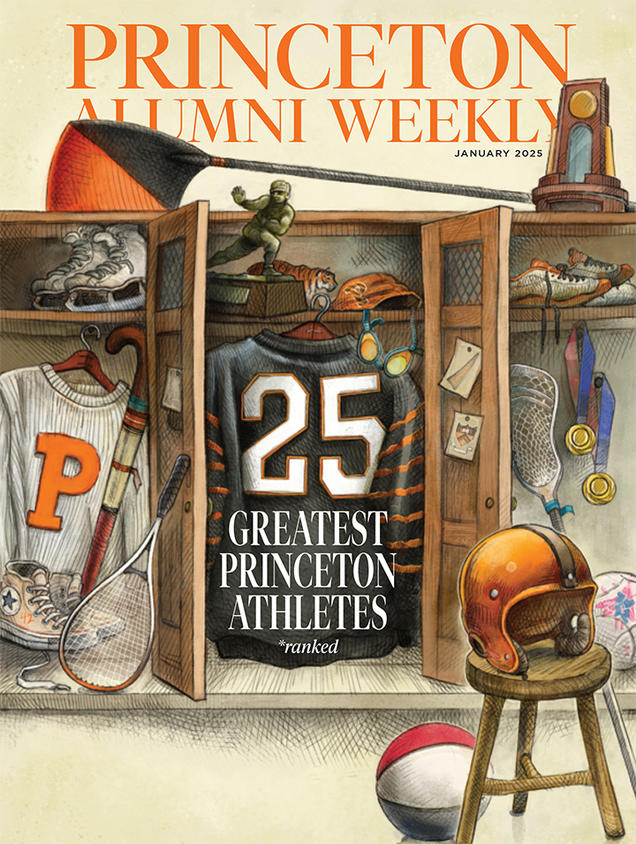
Before Van Wallach ’80 came to Princeton, his dad urged him to learn more about opera, to match his cultured peers. “What I found out was not knowing about Bruce Springsteen was a bigger social impediment,” he said. Wallach also discovered a range of new experiences on campus.
PAW Tracks is also available on iTunes — click here to subscribe
TRANSCRIPT:
Van Wallach ’80, a veteran journalist and author, visited PAW’s oral history project at Reunions last May. For Wallach, coming to Princeton exposed him to a range of new experiences, including some that would help define his path after graduation.
Wallach: My background is that I grew up in a small town in South Texas – Mission, Texas – which at the time I was growing up there, the 60s and 70s, had a population of 11,000.
My parents were divorced, and my father moved from Texas to, eventually, New York City. When I was in high school I came to visit him, and he had very high aspirations for me. He encouraged me to interview at Ivy League schools, so I interviewed at Princeton, Yale, and Columbia in the summer of 1975. Princeton was my first choice. September 1976, I flew out of Miller International Airport in McAllen, Texas, into Newark, and there I was.
I didn’t really know what to expect because I came from an environment where everybody in my family went to school in Texas. My father wanted me to come to Princeton and become polished. He had a very 1920s, ’30s vision of Princeton. In fact, he said, “Van, if you don’t know opera they’re going to eat you up at Princeton.” What I found out was not knowing about Bruce Springsteen was a bigger social impediment.
I came here even before Outdoor Action. I came a day or two early, stayed at the Nassau Inn, and explored campus on my own. There was a meeting of the Association of Humanistic Psychologists going on. That was organized by the psychologist Carl Rogers, a very famous humanistic psychologist. I believe Timothy Leary was a speaker then. In my first weeks at Princeton, besides Timothy Leary, I went to a lecture by Isaac Asimov talking about space exploration. I went to a presentation at the Woodrow Wilson School on, I believe the topic was “Aleksandr Solzhenitsyn as a Historian of the Russian Revolution.” Even at that young age I was very interested in Russian affairs and I knew a little bit about the key players in Russian-U.S. relations. And who was there in the audience but George Kennan ’25. I knew who he was and this was just astounding to me that you could go in here and just as a matter of course, encounter truly historic individuals, legends. It was truly amazing, and this really set the tone for what Princeton could be.
I tried out for the Prince. I got on it, and the first lead story I ever had in the Prince in February 1977 was about Simon Wiesenthal, who was a Holocaust survivor who was very active, very relentless in hunting down Nazi criminals. Again, I knew who he was, and there he was. I’m writing a story about his speech and it’s the lead story in the Prince. It was an amazing moment.
I was also exploring my religious identity. While both of my parents are Jewish, I grew up, because of various family issues, as a Southern Baptist. In high school, I tell people I switched back to the Jewish team. But I literally had no Jewish friends until I came to Princeton so I went to Hillel, I signed up for some classes.
I found it hard to integrate with the Jewish community at Princeton given my background. Maybe because of things my father said to me, I always felt like, “Oh, they know a lot more than I do.” They went to Hebrew school, all kinds of great experiences.
Nobody invited me to go home for Passover. I was really isolated. But then when I was a senior, I had two classmates who invited me to their homes for seders. This was Marc Safran [’80], who lived in Mill Basin, Brooklyn, and Steve Lieberman [’80] who lived in Riverdale, the Bronx. These were the very first seders I ever attended. I can put my finger on the exact experience, and I’m just so moved by the idea that they reached out to me. I truly give them credit for having a profound impact on my life by giving me my start in Jewish observance that nobody else had done.
After four years writing and editing for the Prince, Wallach, an economics major, landed a job at Forbes, and headed to New York City.
Wallach: I talked myself into the job and I got to Forbes, and it was just an awful experience for me. It was just a total mismatch of the kind of really hardnosed, take-no-prisoners journalism they do and the very soft journalism that I excel at. You know, “Let’s do a feature story about you.” That’s not what Forbes is about.
I went from Forbes to a kind of schlocky trade magazine called Quick Frozen Foods where I was actually making more money than I was at Forbes. That magazine’s publishing company, Harcourt Brace Jovanovich, pulled out of New York to go to Cleveland, and I decided to stay here. So the career trajectory was Princeton to Forbes to Quick Frozen Foods to an unemployment line in Brooklyn, all in less than three years.
This was pretty astounding given that you go to Princeton and you think, “OK, Princeton, law school, MBA, onward and upward.” I had an education very quickly that Princeton can launch you but it can’t sustain you. It’s what you do with that education. But I survived. I’m still doing what I love doing, writing. I’ve studied Judaism and Russian and all the other things that I wanted to study as an undergrad, and I kind of did. I’m happy with what I do, and I can sleep at night.

